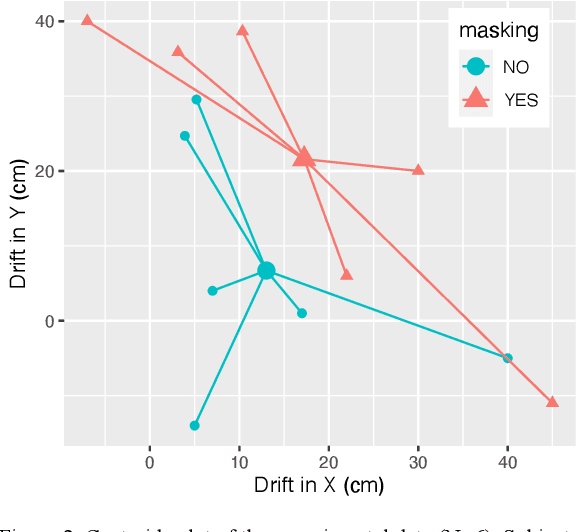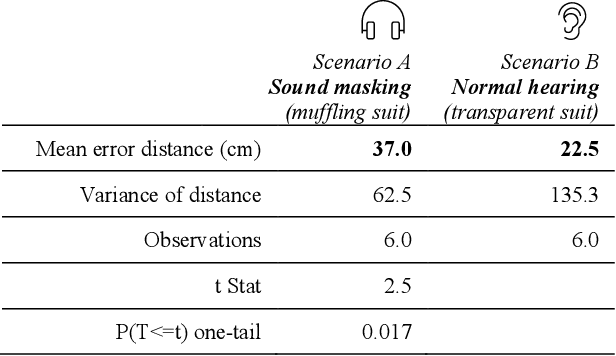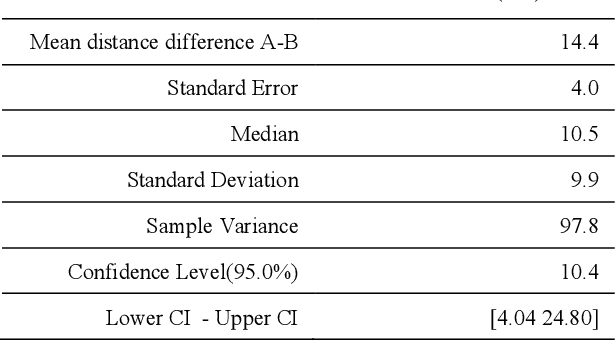Sound masking degrades perception of self-location during stepping: A case for sound-transparent spacesuits for Mars
Paper and Code
Feb 10, 2022



Most efforts to improve spacesuits have been directed towards adding haptic feedback. However, sound transparency can also improve situational awareness at a relatively low cost. The extent of the improvement is unknown. We use the Fukuda-Unterberger stepping test to measure the accuracy of one's perception of self-location. We compare accuracy outcomes in two scenarios: one where hearing is impaired with sound masking with white noise and one where it is not. These scenarios are acoustic proxies for a sound muffling space suit and a sound transparent space suit respectively. The results show that when sound masking is applied, the error in self-location increases by 14.5cm, 95% CI [4.04 28.22]. Suggestions to apply the findings to Mars spacesuit designs are discussed. A cost-benefit analysis is also provided.
 Add to Chrome
Add to Chrome Add to Firefox
Add to Firefox Add to Edge
Add to Edge